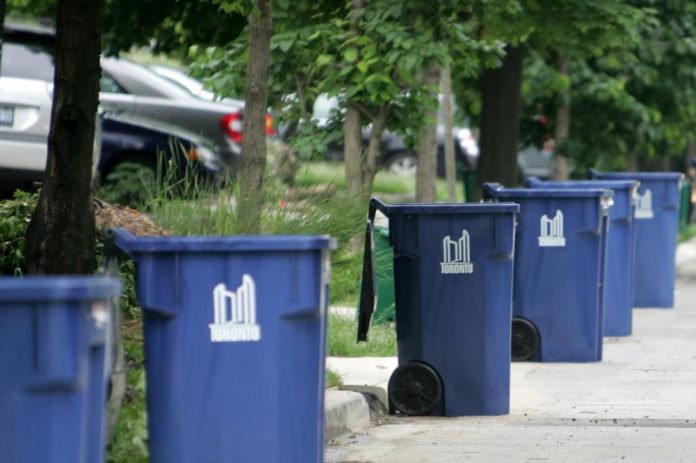No matter how diligent citizens are with separating waste, the sad reality is that most types of plastics do not end up being recycled. The quality of a plastic is degraded each time an item goes through the system, making it more difficult and costly to transform into another useful product. These drawbacks mean that only a fraction of plastics that go into a blue bin are actually recycled.
According to a 2019 report, just 9% of Canada’s plastics were recycled that year, with the rest ending up in landfills, incinerators, or as litter.
Pyrowave is a group that could turn our fortunes around. Their technology can break down difficult plastics to their core components, turning junk into reusable material that’s just as high in quality as fresh material.
The plastics grading system
Plastic products and packaging come in many different forms, and there’s a grading system that determines their recyclability. On plastic water bottles, you’ll likely see a “1” in a triangle symbol, meaning it’s made of PET (polyethylene terephthalate), while opaque milk jugs often get a “2”, indicating a material called HDPE (high-density polyethylene). These grades are easy to recycle since they’re straightforward to cut up and melt down into pellets that are then sold to manufacturers for reuse items in like clothing, carpeting, or packaging.
Materials facilities rate plastics from 1-7. From 3 onwards, it’s generally mixed plastics which are harder to process because the steps required are much more energy-intensive and expensive. Making up 69% of plastic waste, these undesirables were often bulk-shipped to China for processing until a few years ago when the Chinese government banned plastic imports. Now, they mostly end up in landfills or our oceans.
Returning junk plastic to “virgin resins”
The Montreal-based Pyrowave developed a proprietary technology that tackles stubborn plastic junk and returns it to identical “virgin resins”. In plastics, this refers to the resin produced directly from the petrochemical feedstock (like crude oil) that’s never been used before. Put another way, the junk plastic becomes baseline material no different to fresh material. This not only helps with recycling junk plastics, but also with the 1s and 2s that may have become contaminated or degraded to the point that their recycling potential is diminished.
As CEO Jocelyn Doucet put it to Plant, “instead of making products from resources, let’s make resources from products.”
Plastics are made up of blocks called monomers that are assembled into long chains called polymers during the manufacturing process. Pyrowave’s catalytic microwave depolymerization technology uses microwaves on post-consumer plastic to break down the polymers’ internal links without damaging them and return them to monomers. From here, they can be rebuilt as new chains to create plastic products no different to a brand new one.
“We now have the ability to recover polystyrene, our original focus, as well as polypropylene. Polyethylene will hopefully be added in the near future,” said Doucet to Recycling Product News.
“This addresses the issue of recovering mixed plastics and multilayer packaging made from different types of polymers, all mingled together. Traditional mechanical recycling cannot efficiently do this. Our technology could ultimately be able to process all of these compounded materials together.”
Partnership with Michelin to tackle “6” plastics
A landmark moment for Pyrowave came last year when the French tire company Michelin partnered with them, and a Michelin executive now sits on the board. The manufacturer wants to achieve 100% composition from sustainable material with its tires, and they are betting on using recycled styrene produced by Pyrowave. For their part, Michelin are investing $31 million in the company and lending their industry expertise.
As part of this goal, Pyrowave is targeting “6” plastics (polystyrene) and recreating the original styrene monomers which Michelin can use to make rubber tires. Polystyrene is a notoriously difficult to recycle plastic often found in disposable plates and cups, meat trays, and take-out food containers.
“Michelin has made a very strong and aggressive commitment to integrate more renewable, recyclable, and even biomaterials in their products. The short story is some of their products require styrene. They hadn’t yet found any renewable alternative for the styrene source,” said Doucet.
Canada is under pressure to reach its goal of zero plastic waste by 2030. Although bans on big offenders like single-use plastics are a step forward, developing technologies that unlock a circular economy with plastics could be groundbreaking.
“Advanced recycling technologies are a key piece to developing a circular economy for plastics and eliminating plastic waste,” said Elena Mantagaris, VP of Plastics Division at the CIAC, to Plant. “Pyrowave is a prime example of how Canadian companies are leading the way in developing innovative and effective technologies that are successfully addressing the issue of plastic waste.”








































